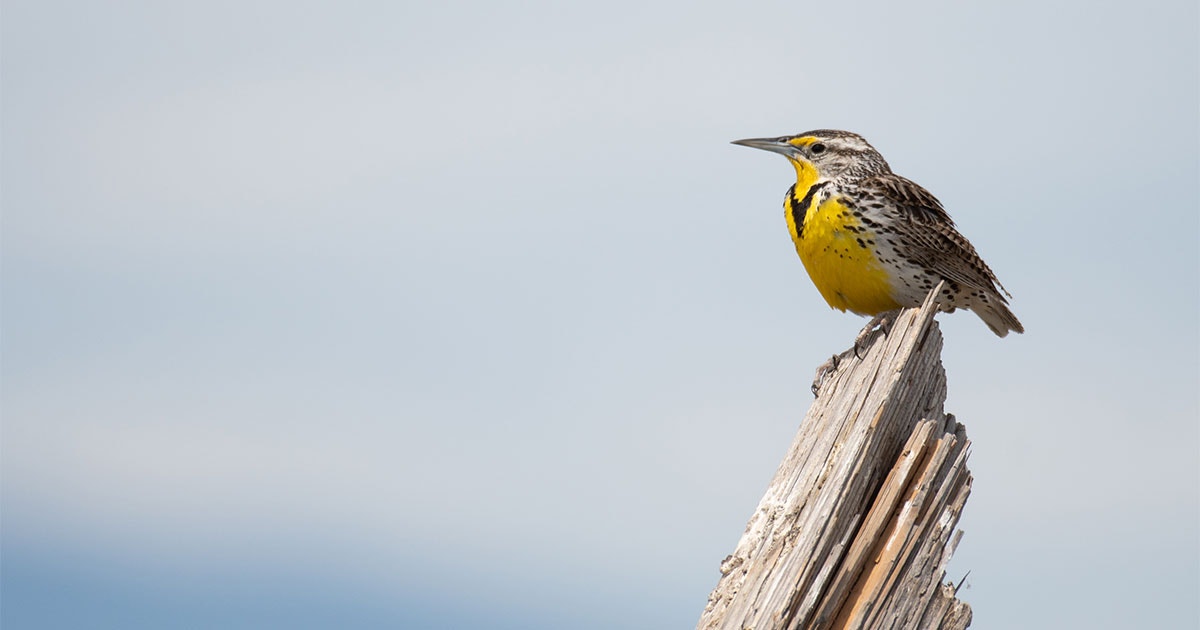WASHINGTON (October 11, 2024) – Two bills introduced by Rep. Jared Huffman (D-Ca.) and Rep. Brian Fitzpatrick (R-Pa.) will help reinforce and modernize century-old protections for migratory birds, and support international coordination to conserve iconic and imperiled seabirds.
“At a time when we have lost more than 3 billion birds in the past 50 years, these bills will help reverse the decline of bird populations when it is needed most,” said Felice Stadler, vice president of government affairs at the National Audubon Society. “It is time for Congress to take up and pass these bills. We thank Representatives Huffman and Fitzpatrick for advancing these important pieces of legislation, which combined will help bend the bird curve, and restore bird populations.”
The Migratory Bird Protection Act will strengthen the Migratory Bird Treaty Act (MBTA), which has stood for over a century as the primary law protecting birds, despite unprecedented recent attacks and attempted rollbacks. The legislation will modernize the MBTA and reinforce long-standing yet threatened protections for birds from “incidental take,” which includes preventable harm from industrial activities. At the same time, it will provide certainty and predictability for businesses by directing the U.S. Fish and Wildlife Service to develop an authorization for incidental take, including through an efficient approach such as general permits, and by reforming the law to allow civil penalties to be issued, rather than criminal penalties alone. Additionally, it will establish a Migratory Bird Recovery Fund to help direct resources to birds of conservation concern, and create a new research program.
The Albatross and Petrel Conservation Act will implement an international agreement that was developed in 1999 to conserve 31 species of albatrosses, petrels and shearwaters, known as the Agreement on the Conservation of Albatrosses and Petrels (ACAP). Should the bill pass, and the Senate ratify the Agreement, the United States will join 13 other parties to the agreement.
Across the world’s oceans, hundreds of thousands of albatrosses, petrels, and shearwaters die every year as a result of bycatch from certain fishing operations, and they face other threats such as invasive species, plastic pollution, and more. Because these birds range across numerous nations and the high seas, international cooperation is needed to help conserve them. The United States’ participation and leadership in ACAP will enhance this vital coordination to benefit imperiled seabirds both within and outside of U.S. waters.
About Audubon
The National Audubon Society protects birds and the places they need, today and tomorrow. Audubon works throughout the Americas using science, advocacy, education, and on-the-ground conservation. State programs, nature centers, chapters, and partners give Audubon an unparalleled wingspan that reaches millions of people each year to inform, inspire, and unite diverse communities in conservation action. A nonprofit conservation organization since 1905, Audubon believes in a world in which people and wildlife thrive. Learn more at www.audubon.org and on Facebook, Twitter and Instagram @audubonsociety.
Media Contact: Joey Kahn, [email protected]

